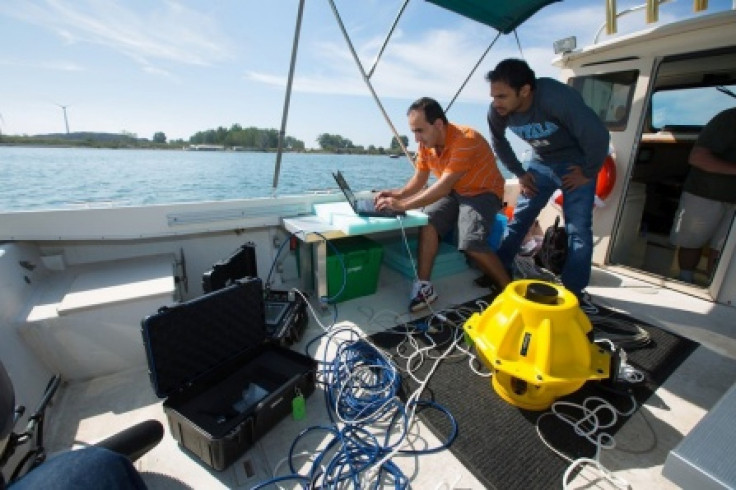Deep-Sea Internet: Researchers Successfully Test Underwater Wi-Fi Network In Lake Erie
Researchers at the University at Buffalo, New York, are developing an underwater Wi-Fi network that they hope will pave the way toward deep-sea Internet. It’s less about checking emails while SCUBA diving and more about tsunami detection, off-shore oil and natural gas exploration, surveillance and pollution monitoring.
Normal Wi-Fi uses radio waves, but the range and stability are limited in water. The researchers took a lesson from marine mammals and decided to build the underwater Wi-Fi using sound waves.
The researchers tested the underwater Wi-Fi in Lake Erie, N.Y., and were successfully able to transmit information from a laptop to two 40-pound sensors dropped into the water.

Many agencies employ networks that make it difficult to share information. For example, the U.S. National Oceanic and Atmospheric Administration is not able to share the data it collects with the U.S. Navy.
A deep-sea Internet will make it much easier for organizations around the world to collaborate, share data and analyze it in real time. The data could also be made available more quickly to the public, potentially saving lives.
"We could even use it to monitor fish and marine mammals, and find out how to best protect them from shipping traffic and other dangers," Tommaso Melodia, an associate professor at UB, said. "An Internet underwater has so many possibilities."
© Copyright IBTimes 2024. All rights reserved.












